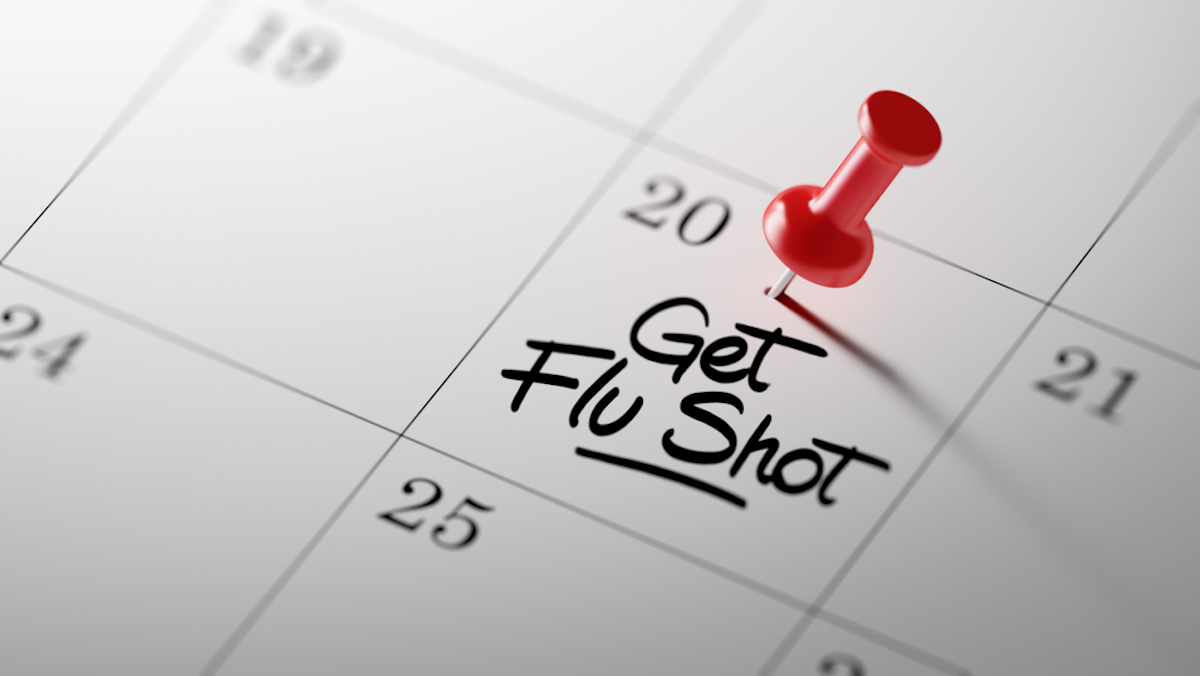This article appeared in The Sault News. Read the story here.
LANSING – State officials are making a big push for Michiganders to get flu shots as the COVID-19 pandemic continues.
They’ve set a goal of more than 4.2 million Michigan residents getting a flu vaccine this year, which would be a 33% increase over 2019.
Gov. Gretchen Whitmer said Tuesday it is “more important than ever” for Michiganders to get a flu shot as the state continues dealing with the still-raging pandemic.
Dr. Paul Entler, who serves as vice president of quality for Sparrow Health, agreed it’s particularly critical this year for people to get a flu vaccine.
Here’s more on why it’s so important, when to get the vaccine and what people can expect.
How much more important is it to get a flu shot this year?
“I think it’s critical that [people] do get the vaccine,” Entler said. “When you do get the flu shot, you may still get the flu, but it will be significantly less serious.”
That reduces hospitalizations, he said, which is important because hospitals want to make sure there are enough resources this fall as the pandemic continues.
Whitmer also stressed that point during her press briefing on Tuesday. She got her flu shot from an Ingham County Health Department nurse during the briefing.
“Every flu-related hospitalization we see this season will put an additional strain on Michigan’s economy and our health care systems and hospitals,” Whitmer said in a statement. “Our hospitals are still reeling from the spring COVID-19 hospitalizations and are working to prepare for a potential second wave of the virus.”
Hospitals aren’t sure what to expect from a potential second wave, Entler said, because there are still so many unknowns surrounding COVID-19.
Knowledge of the flu is much stronger, he said.
“We know when you do get the flu vaccine, it protects you against getting very ill or dying from the flu,” Entler said.
Who should get a flu shot?
Typically, nearly everyone age 6 months and older should get a flu shot, Entler said.
Health professionals are trying to cast a wider net this year and “do a blanket of six months and older even outside your high-risk groups,” he said.
The more people who are vaccinated, the better, he said — especially this year.
“It doesn’t just protect yourself, it protects others with high risk,” Entler said, comparing it to wearing a mask to slow the spread of COVID-19.
Both the flu and the disease caused by the novel coronavirus are “highly contagious,” he said.
Anyone who hasn’t had a flu shot before should talk to their doctor about getting one this year, he added.
Are there enough available for everyone in Michigan?
Pharmacies, health departments, hospitals and others are trying to stockpile vaccines, Entler said.
There have been enough in past years, he said, and that should also be the case this year.
“We haven’t heard otherwise that there aren’t,” Entler said.
They might not be available at a particular location if people don’t correctly predict how many to order, he said, but they should be available somewhere else.
When should you get a flu shot?
People should get a flu vaccine in late September or early October, Entler said.
“You want to try to peak when the peak season is,” he said.
Flu season typically peaks between December and February, according to the Centers for Disease Control and Prevention.
It takes some time for antibodies to get up and running, Entler said, so it’s best to get a flu vaccine before that peak.
It’s too early to get one just yet, though, he said.
What should people expect after getting the vaccine?
Most people won’t experience anything too different after getting the vaccine, Entler said.
There might be some soreness, redness or swelling around the injection site for those who get the shot, he said.
Others might have a headache, fever or achy muscles or feel fatigued.
While those are flu symptoms, he said, people don’t get the flu from the shot.
“Those are just reactions to the vaccine,” Entler said.
Getting the flu from the flu shot is one of the many pieces of misinformation out there about the flu and flu vaccine, Dr. Joneigh Khaldun said, but the science is clear.
What else can help prevent the flu?
Another easy thing people can do to protect themselves from the flu is to wash their hands, Entler said.
That’s the best thing, besides the vaccine, to help prevent the spread of flu, he said.

